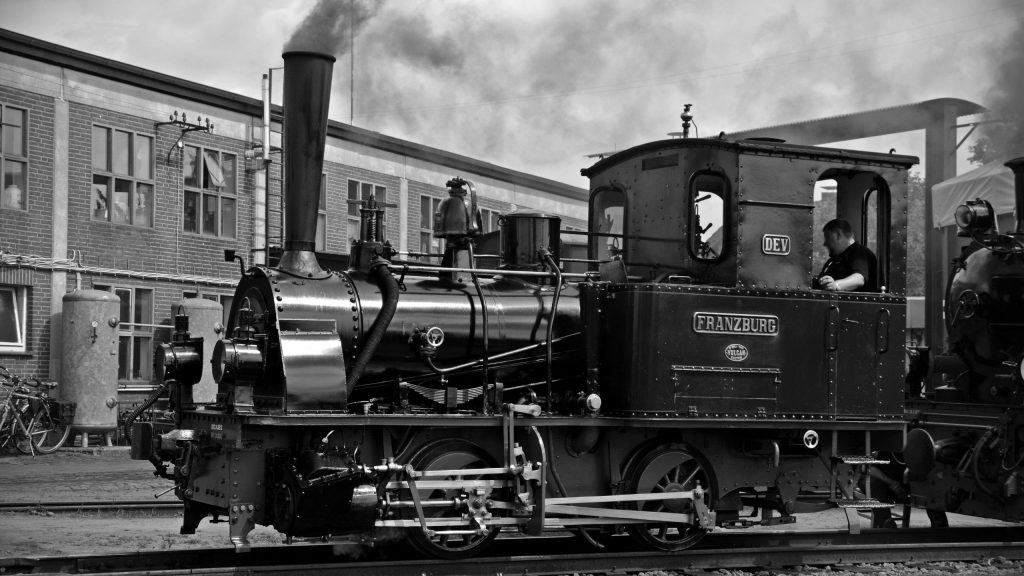Train engineers, also known as train drivers or locomotive drivers, are responsible for operating and controlling trains, ensuring the safe transportation of passengers and freight.
In the UK, train engineers play a vital role in the efficient operation of the rail network, navigating complex routes and adhering to strict safety protocols. If you have a passion for trains, a keen eye for detail, and a commitment to safety, a career as a train engineer could be an excellent choice for you.
This comprehensive guide will outline the steps to become a train engineer in the UK, including the necessary qualifications, training, and professional development opportunities.
Meet the Basic Requirements
To become a train engineer in the UK, you must meet certain basic requirements set by the rail industry and train operating companies.
Age and Citizenship
Most train operating companies in the UK require applicants to be at least 18 years of age to begin training as a train engineer. Additionally, you must be a British citizen or hold a valid work permit that allows you to work in the UK.
Educational Qualifications
While there are no specific educational qualifications required to become a train engineer, most employers prefer candidates with good literacy and numeracy skills, typically demonstrated by GCSEs (or equivalent) in English and Mathematics at grades A-C or higher.
Physical and Medical Requirements
Train engineers must meet strict physical and medical requirements to ensure they can perform their duties safely and effectively. These requirements include:
- Good eyesight (with or without corrective lenses)
- Good hearing and no significant speech impediments
- Excellent overall physical fitness and health
You will undergo comprehensive medical examinations as part of the application and training process to ensure you meet these requirements.
Obtain the Necessary Licenses and Certifications
To operate trains in the UK, you must hold the necessary licenses and certifications issued by the relevant authorities.
Personal Track Safety (PTS) Certificate
The Personal Track Safety (PTS) certificate is a basic requirement for anyone working on or near the rail network. This certification demonstrates your understanding of safety procedures, track hazards, and personal protective equipment. You can obtain a PTS certificate through various training providers approved by the Rail Safety and Standards Board (RSSB).
Train Driver’s License
To operate trains in the UK, you must hold a valid train driver’s license. This license is issued by the Office of Rail and Road (ORR), the UK’s rail regulator, and it demonstrates your competence in operating trains safely and efficiently. The license is obtained through a combination of theoretical and practical training, as well as a series of examinations.
Route Knowledge Certification
In addition to a train driver’s license, you must also obtain route knowledge certification for the specific routes you will be operating on. This certification ensures that you have a thorough understanding of the track layouts, signaling systems, and speed restrictions for each route.
Route knowledge certification is obtained through practical training and assessments conducted by the train operating companies.

Complete the Training Process
To become a qualified train engineer in the UK, you must undergo comprehensive training that covers both theoretical and practical aspects of train operation.
Initial Training
Most train operating companies offer initial training programs for aspiring train engineers. This training typically includes:
- Classroom-based instruction on topics such as rail safety, track knowledge, signaling systems, and train operations.
- Practical training on simulators and training rigs to develop driving skills and familiarity with train controls.
- On-the-job training under the supervision of experienced train engineers, known as driver mentors.
Assessments and Examinations
Throughout the training process, you will be required to pass various assessments and examinations to demonstrate your knowledge and competence. These assessments may include written exams, practical driving tests, and route knowledge evaluations.
Obtaining the Train Driver’s License
Upon successful completion of the initial training program and passing the required assessments, you will be eligible to apply for a train driver’s license from the ORR. This license is a mandatory requirement to operate trains on the UK rail network.
Ongoing Training and Development
Even after obtaining your train driver’s license, you will continue to receive ongoing training and development to maintain and enhance your skills. This may include refresher courses, route knowledge updates, and training on new train equipment or operating procedures.
Develop Essential Skills and Qualities
Becoming a successful train engineer requires more than just technical knowledge and licensing. You must also cultivate a range of essential skills and qualities to excel in this role.
Concentration and Vigilance
As a train engineer, you must maintain a high level of concentration and vigilance at all times. Train operation requires constant attention to signals, speed limits, track conditions, and potential hazards.
Situational Awareness and Decision-Making
Excellent situational awareness and the ability to make quick, informed decisions are crucial for train engineers. You must be able to assess complex situations, anticipate potential issues, and respond appropriately to ensure the safety of passengers, crew, and the train itself.
Communication Skills
Strong communication skills are essential for train engineers. You will need to communicate effectively with control centers, station staff, and other train crews, as well as passengers in case of emergencies or disruptions.
Stress Management and Composure
Train engineers often work long shifts and may encounter high-stress situations, such as delays, equipment malfunctions, or passenger incidents. Maintaining composure and managing stress effectively are crucial qualities for success in this role.
Physical Fitness and Alertness
Train engineering can be physically demanding, requiring you to maintain good overall health and fitness. You must also be able to remain alert and focused during long shifts, often working irregular hours or overnight.
Gain Experience and Advancement Opportunities
As a train engineer, you will have opportunities to gain valuable experience and pursue career advancement within the rail industry.
Accumulating Route Knowledge
As you progress in your career, you will have the chance to accumulate route knowledge for various rail networks. This will increase your versatility and potential for deployment to different routes and train operating companies.
Specialization and Promotion
With experience and continuous professional development, you may have the opportunity to specialize in operating specific types of trains, such as high-speed trains, freight trains, or underground trains. Additionally, you may be eligible for promotion to supervisory or management positions, such as train instructor, route manager, or operations manager.
Transferring to Other Rail Roles
Your experience as a train engineer can also open doors to other roles within the rail industry, such as train dispatcher, signaling technician, or railway safety inspector. These roles may offer additional challenges, responsibilities, and career growth opportunities.
Pursue Continuous Professional Development
To maintain your skills and knowledge as a train engineer, it is essential to engage in continuous professional development (CPD). The rail industry is constantly evolving, with new technologies, regulations, and best practices being introduced regularly.
Mandatory Refresher Training
Train operating companies typically require train engineers to attend regular refresher training courses to maintain their knowledge and skills. These courses may cover updates to safety procedures, route knowledge, or new train equipment.
Voluntary Training and Certifications
Consider pursuing voluntary training and certifications to enhance your knowledge and skills beyond the mandatory requirements. This may include courses on advanced train handling techniques, emergency response procedures, or leadership and management skills.
Networking and Collaboration
Attend industry events, conferences, and networking opportunities to connect with other train engineers, share knowledge and experiences, and stay informed about the latest trends and developments in the rail industry.
Self-Study and Research
Engage in self-study by reading industry publications, journals, and online resources to stay up-to-date with new technologies, regulations, and best practices in the rail industry.
FAQs
- How long does it take to become a train engineer in the UK?
The duration of training to become a train engineer in the UK can vary depending on the specific train operating company and the type of train you will be operating.
Generally, the initial training process can take several months to over a year, including classroom instruction, practical training, and on-the-job experience. Additionally, obtaining the necessary licenses and certifications, such as the train driver’s license and route knowledge certification, can add further time to the process.
- Do I need a university degree to become a train engineer in the UK?
No, a university degree is not a mandatory requirement to become a train engineer in the UK. Most train operating companies focus on practical skills, knowledge, and licensing rather than academic qualifications.
However, having a degree in a relevant field, such as engineering or transportation, can be beneficial and may give you a competitive edge during the recruitment process.
- What are the career prospects for train engineers in the UK?
The career prospects for train engineers in the UK are generally good. As the rail network continues to expand and modernize, there is a growing demand for skilled train engineers.
With experience and continuous professional development, train engineers can progress to supervisory or management roles within the rail industry, such as train instructor, route manager, or operations manager. Additionally, their skills and knowledge can open doors to other roles within the rail sector, such as train dispatcher, signaling technician, or railway safety inspector.
- How much do train engineers earn in the UK?
The average salary for train engineers in the UK can vary depending on factors such as the train operating company, location, and experience level. According to PayScale, the average salary for a train engineer in the UK is around £40,000 per year.
Entry-level train engineers can expect to earn between £25,000 and £35,000 annually, while experienced and specialized train engineers can earn up to £50,000 or more per year, especially if they take on supervisory or management roles.
- What are the working conditions like for train engineers in the UK?
The working conditions for train engineers in the UK can be challenging but rewarding. Train engineers often work long shifts, sometimes up to 10 hours or more, and may be required to work overnight, weekends, and holidays to maintain rail services.
They spend a significant amount of time in the driver’s cab, operating trains in various weather conditions and navigating complex rail networks. However, most train operating companies provide comprehensive training, support systems, and modern facilities to ensure the safety and well-being of their train engineers.
Conclusion
Becoming a train engineer in the UK is a rewarding career path that combines a passion for trains with a commitment to safety and operational excellence.
By following the steps outlined in this guide, including meeting the basic requirements, obtaining the necessary licenses and certifications, completing comprehensive training, developing essential skills and qualities, gaining experience and advancement opportunities, and pursuing continuous professional development, you can embark on a fulfilling career as a train engineer.
Remember that being a successful train engineer requires more than just technical knowledge and driving skills. It demands a high level of responsibility, attention to detail, and the ability to make critical decisions under pressure.

